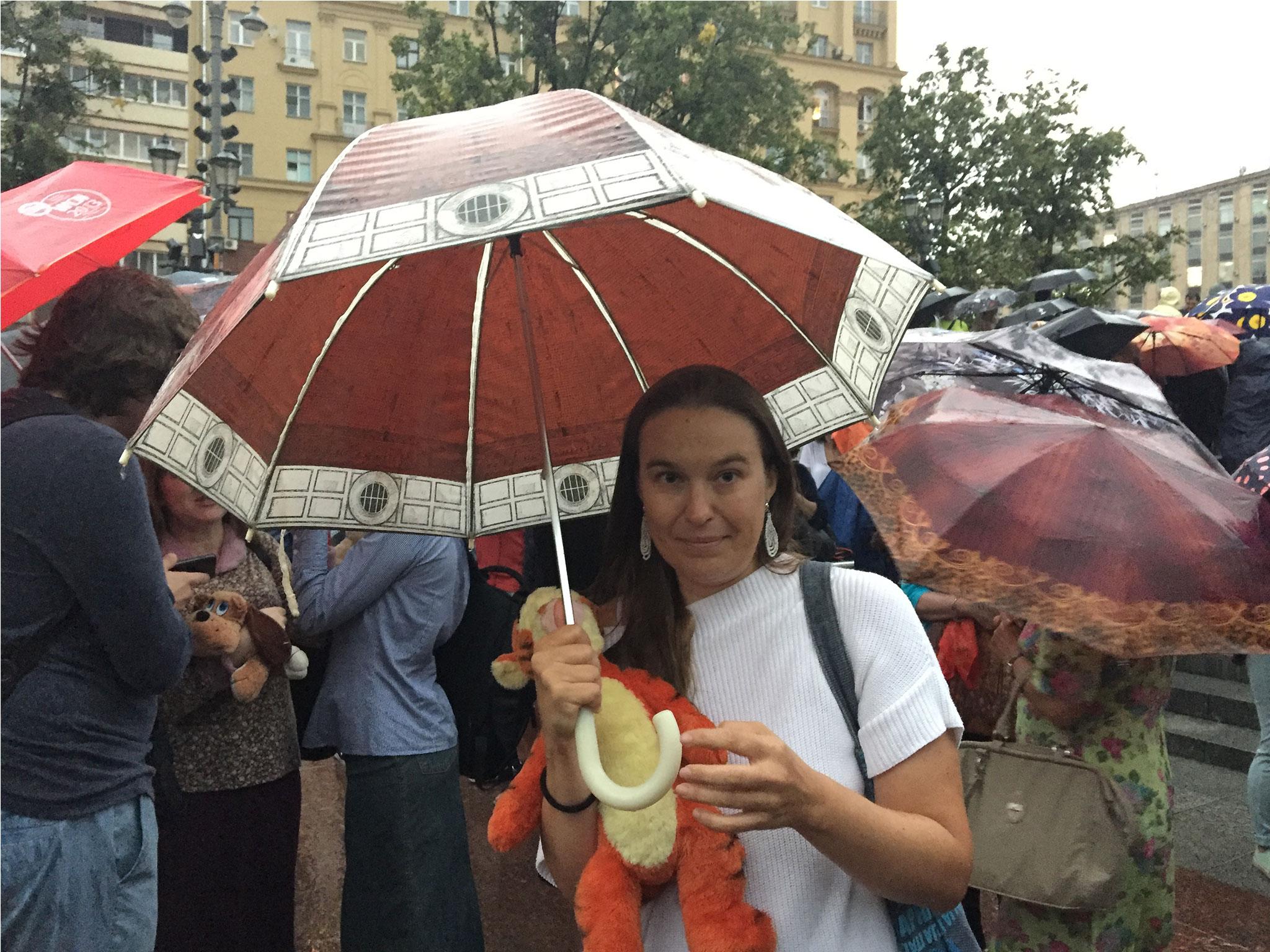March of Mothers: Protests against controversial prolonged detention of young anti-Putin ‘revolutionaries’
Demonstrators carry toys owned by their sons and daughters – highlighting the ages of some of those who have been arrested

Your support helps us to tell the story
From reproductive rights to climate change to Big Tech, The Independent is on the ground when the story is developing. Whether it's investigating the financials of Elon Musk's pro-Trump PAC or producing our latest documentary, 'The A Word', which shines a light on the American women fighting for reproductive rights, we know how important it is to parse out the facts from the messaging.
At such a critical moment in US history, we need reporters on the ground. Your donation allows us to keep sending journalists to speak to both sides of the story.
The Independent is trusted by Americans across the entire political spectrum. And unlike many other quality news outlets, we choose not to lock Americans out of our reporting and analysis with paywalls. We believe quality journalism should be available to everyone, paid for by those who can afford it.
Your support makes all the difference.Hundreds of Russians braved lightning storms and potential arrest to take part in an unsanctioned rally protesting the controversial imprisonment of a group of young anarchists.
The anarchists, who called themselves “the New Greatness”, are alleged to have plotted to violently overthrow the Russian system. But details of the case are murky.
From meetings in McDonald’s, the group is alleged to have agreed on a revolution via social media and leafleting. Police arrested 10 members of the group in March.
The rally in Moscow’s central New Pushkin Square styled itself as a “mothers’ march”. Huddled under umbrellas, the mostly female protesters carried toys of their sons and daughters. Some carried unicorns in reference to the “My Little Pony” that Anna Pavlikova, the youngest of the imprisoned anarchists, loved to collect. But with political messages banned, it also was the protesters’ way of identifying each other and avoiding arrest.
“This is my son’s little tiger,” said Yekaterina Milanovskaya, 40, holding up an orange soft toy. “We bought it for him on his first new year. He’s 14 now, all brave and happy. But it doesn’t take much to imagine him getting involved in a little mutiny somewhere, and getting arrested. That’s what authorities are doing. They want to scare people like me, to keep the kids from protesting.”
Journalist Anna Narinskaya, one of the organisers of the protest, told The Independent that the rally’s aims were two-fold: to bring attention to the “injustice” of the case; and to demand the release the two youngest members of the group, who are suffering from serious ill-health. Anna Pavlikova, now 18, has lost part of her hearing, and Maria Dubovik,19, has a tumour. Both also suffer from panic attacks.
“We are against the whole absurd case, but even on the government’s own terms as they present to us, the treatment of these girls goes beyond the humane,” she said. “This protest has been organised by mothers for mothers. We understand that all of our children are at risk. Any of them could be tricked into something like this.”
The existence of the opposition movement seems to have come as a surprise to everyone except Russia’s law enforcement.
The group is alleged to have undertaken weapons training ahead of a revolutionary campaign. But the main sources of the evidence are security officers who infiltrated their network. At least one played a significant role in directing the group’s activities.
According to supporters and lawyers acting for the youngsters, the actions of security services amounted to an illegal act of provocation. They say the security agents were instrumental in pushing the group to greater militancy.
“They invented the revolution themselves and then found people to fill the gaps,” says organiser Ms Narinskaya.
Ahead of the rally, police warned that participation risked fines and arrests. As per Russia’s controversial protest laws, any political gathering requires permission from local authorities. Opposition actions are rarely granted permission without long delays, or locations away from the city centre. As a result, organisers did not even try to get permission. They were issued with official warnings the morning of the rally.
The decision not to seek permission may have been a mistake, says Maxim Pashkov, a lawyer acting for Maria Dubovnik. Speaking on the opposition-leaning Dozhd TV channel, he said provocations could make his defendant’s predicament worse. But the rally itself seems to have passed peacefully enough. As of 19.30 local time [16:30 GMT], an hour after the start of the rally, there had been no arrests.
A few hours before the start of the march, authorities raised hopes that they may pull back from their hardline position. Russia’s State Investigation Committee announced that it had requested Russia’s court authorities change Maria Dubovik and Anna Pavlikova’s detention conditions from prison to home arrest. The development was hailed by some as a victory for people power. But activist and prison expert Olga Romanova urged caution, saying that the move was probably designed to wrongfoot activists.
Writing in Facebook, she said investigators were able to change terms of the arrest without permission from the courts.
“You can imagine that other people phoned the judge and recommended what the decision should be,” she wrote. “They are our judges, investigators and prosecutors mixed together in one flask.”
The decision on the girl’s future will be become clear tomorrow, Thursday, in a morning session of Moscow’s Dorogomilovsky court.
Join our commenting forum
Join thought-provoking conversations, follow other Independent readers and see their replies
0Comments